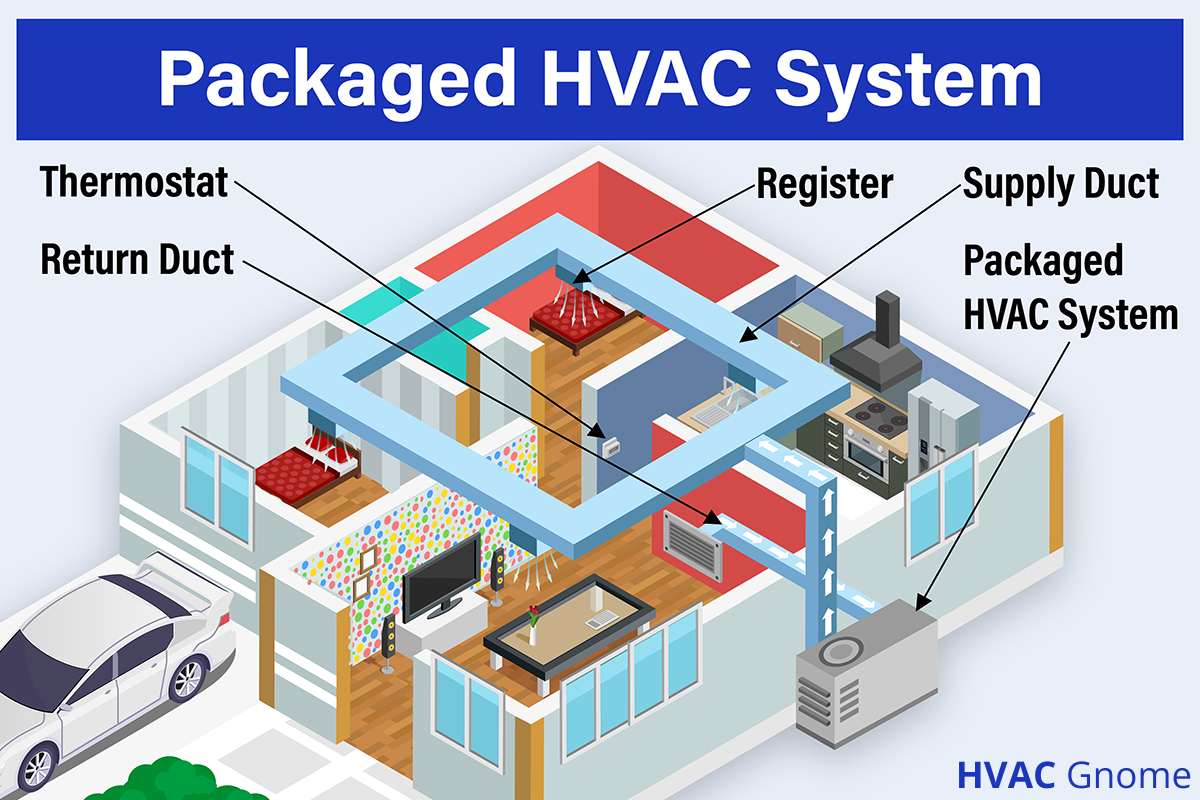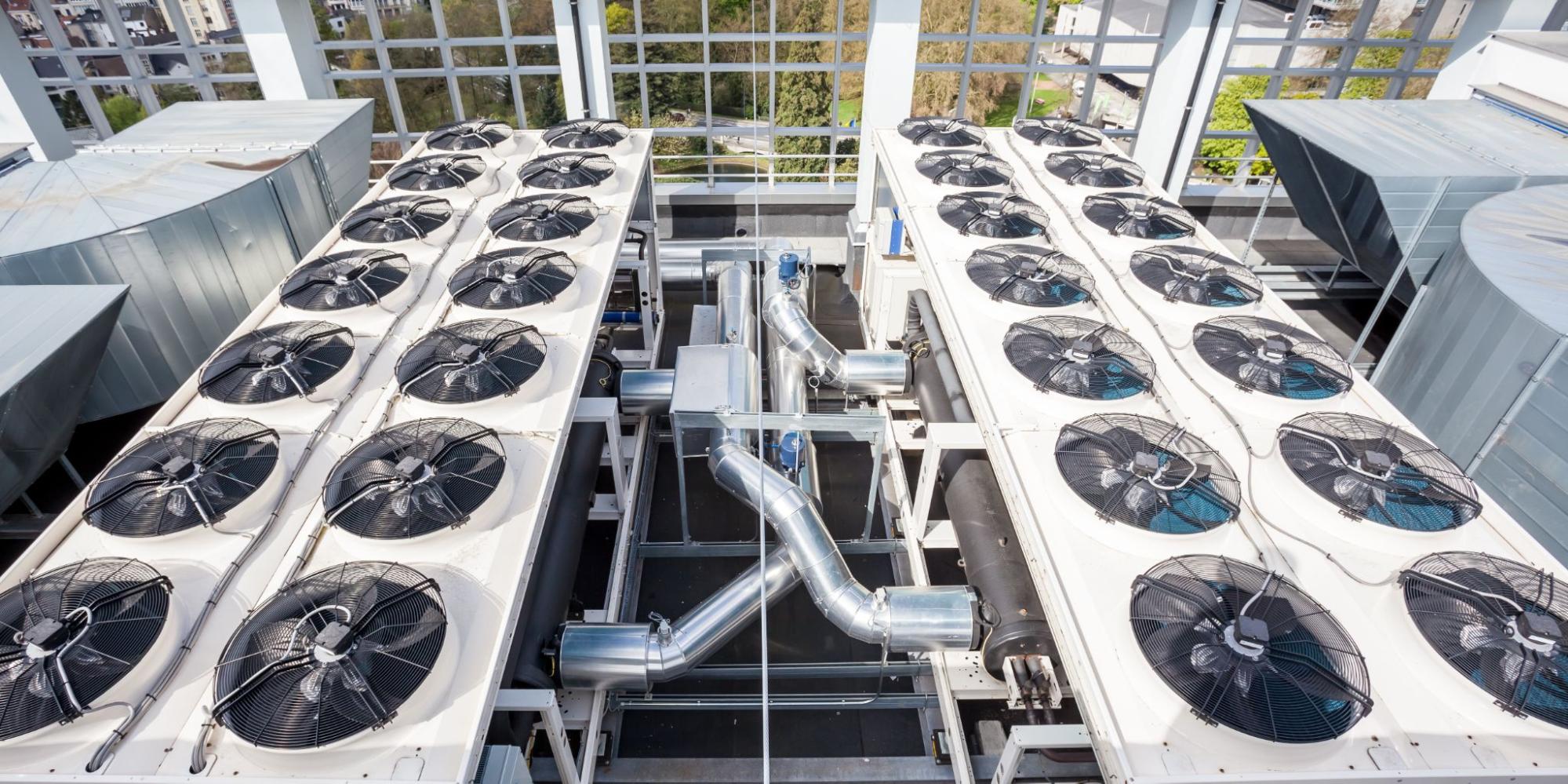Commercial HVAC Installation Providers for Large-Scale Air Conditioning Equipments
An Extensive Take A Look At Heating And Cooling Solutions and Their Influence On Power Performance and Cost Financial Savings
The duty of cooling and heating solutions in boosting power effectiveness and achieving price savings is much more essential than ever, as organizations and property owners look for sustainable remedies in a significantly eco-conscious globe. With technical improvements like clever thermostats and high-efficiency parts, the capacity for enhancing system performance is huge. Yet, real influence of these innovations depends mainly on routine maintenance and aggressive issue management. As we explore the detailed partnership between HVAC systems and functional prices, including the shift in the direction of eco-friendly alternatives, the question arises: just how can these approaches be successfully executed to optimize both eco-friendly and economic benefits?

Relevance of HVAC Solutions
cooling and heating systems are a vital element of modern-day buildings, playing an important duty in preserving healthy and comfy indoor atmospheres. These systems, encompassing air, heating, and air flow conditioning, are essential for regulating temperature level, moisture, and air high quality, therefore making certain the wellness of residents. Effective HVAC systems add dramatically to producing an ideal interior environment, which is essential for both residential and commercial rooms.
In commercial structures, cooling and heating systems are indispensable to supplying a efficient and secure atmosphere. By controlling indoor climate problems, these systems help protect against the development of mold and mildew and the spread of airborne pollutants, hence protecting the health of consumers and employees. Furthermore, in domestic setups, a/c systems enhance living conditions by supplying constant thermal comfort and improving interior air quality, which is crucial for total health.
Additionally, the layout and upkeep of heating and cooling systems have a straight effect on energy consumption and functional prices. Properly designed and preserved systems can dramatically lower power use, bring about minimized energy expenses and a smaller carbon impact. The performance of these systems therefore plays a vital function in advertising sustainability and energy conservation within buildings, highlighting their significance in the contemporary building landscape.
Breakthroughs in Heating And Cooling Innovation
Advancement in a/c modern technology is revolutionizing the way structures take care of indoor environments, introducing a new period of performance and control. Current improvements have actually concentrated on maximizing power consumption while boosting customer comfort. One remarkable growth is the combination of wise thermostats, which make use of expert system to learn occupancy patterns and readjust temperature levels appropriately, reducing unneeded power usage.
Variable Refrigerant Flow (VRF) systems stand for another significant leap onward. These systems permit specific temperature control in different areas of a building, boosting convenience and minimizing energy waste. VRF innovation is specifically advantageous for large industrial areas, supplying adaptability and scalability.
Furthermore, the advent of Internet of Things (IoT) tools has changed a/c systems into interconnected networks qualified of real-time data collection and analysis. This connection makes it possible for anticipating maintenance, making certain systems operate at peak performance and decreasing unanticipated downtime.
Furthermore, developments in materials and design, such as using high-efficiency coils and compressors, have actually improved general system efficiency - Heating Contractor. The adoption of eco-friendly cooling agents additionally highlights the industry's commitment to sustainability
These technical developments are pivotal in reducing operational costs and environmental effect, establishing brand-new requirements for building climate management.
Heating And Cooling Maintenance and Efficiency
Ensuring optimal efficiency of cooling and heating systems straight from the source prolongs past technological developments; it also depends upon reliable maintenance techniques. Routine maintenance is important for maintaining performance, lowering energy consumption, and expanding the life expectancy of news heating and cooling systems. The primary objective is to guarantee that all components function at their peak possibility, therefore reducing power wastage and maintaining regular interior convenience degrees.
Regular maintenance tasks, such as cleaning or changing air filters, inspecting cooling agent levels, and inspecting ductwork for leakages, are necessary for protecting against unnecessary strain on the system. Clogged or filthy filters can obstruct air flow, causing the system to work tougher and consume even more energy. Likewise, inadequate refrigerant degrees can minimize cooling down efficiency, causing higher operational expenses.
In addition, regular assessments by qualified experts can determine potential issues before they rise into pricey repair services or system failures. These assessments typically consist of checking electric connections, adjusting thermostats, and guaranteeing the general integrity of the HVAC system. By attending to minor issues early, organizations and house owners can stay clear of unforeseen break downs and boost power effectiveness.
Economical A/c Solutions
For those seeking to obtain the most out of their air, heating, and air flow conditioning systems without damaging the financial institution, exploring affordable cooling and heating options can make a significant distinction. One immediate step is to purchase programmable thermostats, which allow users to establish particular temperatures for various times of the day, enhancing energy use and lowering unneeded usage. By automating temperature level changes, house owners can achieve substantial cost savings on power costs.
Normal maintenance is an additional critical part of cost-effective a/c management. Ensuring that filters are cleaned up or changed frequently, ductwork is sealed, and systems are serviced by professionals can prevent expensive fixings and improve system longevity. Precautionary upkeep not just maintains system performance but also assists in avoiding unanticipated breakdowns that can result in pricey emergency visite site fixings.
Additionally, retrofitting existing systems with energy-efficient elements, such as variable rate electric motors or high-efficiency compressors, can be a prudent investment. These upgrades enhance operational efficiency, minimize energy use, and can often be carried out at a portion of the price of a full system replacement.
Environmental Impact Decrease
Lowering the environmental effect of cooling and heating systems is vital in today's pursuit of sustainable living. Cooling and heating systems are significant contributors to energy consumption, making up virtually 40% of power usage in commercial buildings. This energy demand commonly depends on fossil gas, resulting in greenhouse gas discharges and ecological destruction. Transitioning to more effective systems, such as those utilizing renewable resource resources, can considerably reduce these effects.
Technological innovations in heating and cooling style and procedure, consisting of the integration of clever thermostats and energy-efficient heatpump, are essential in minimizing carbon impacts. These innovations enable for enhanced energy usage, lessening wastage and improving total system efficiency. In addition, taking on routine upkeep techniques guarantees HVAC systems run at peak performance, additional reducing unnecessary power usage.
Moreover, making use of eco-friendly cooling agents is crucial, as traditional refrigerants, like CFCs and HCFCs, have actually been terminated because of their ozone-depleting residential properties. Modern options, such as hydrofluoroolefins (HFOs), offer lowered environmental threats, lining up with global ecological methods. By welcoming these sustainable techniques, cooling and heating services can play a transformative function in decreasing ecological impacts, advertising power effectiveness, and promoting an extra lasting future.
Conclusion

Moreover, the style and upkeep of A/c systems have a direct impact on energy usage and functional costs. Routine maintenance is essential for maintaining efficiency, decreasing power intake, and extending the life span of HVAC systems. Heating and cooling systems are considerable factors to power intake, accounting for nearly 40% of energy use in commercial buildings. Furthermore, taking on routine maintenance methods makes sure Cooling and heating systems operate at peak performance, more stopping unneeded energy consumption.
The change to environmentally pleasant HVAC systems further promotes and decreases functional expenses sustainability. (Heating Contractor)